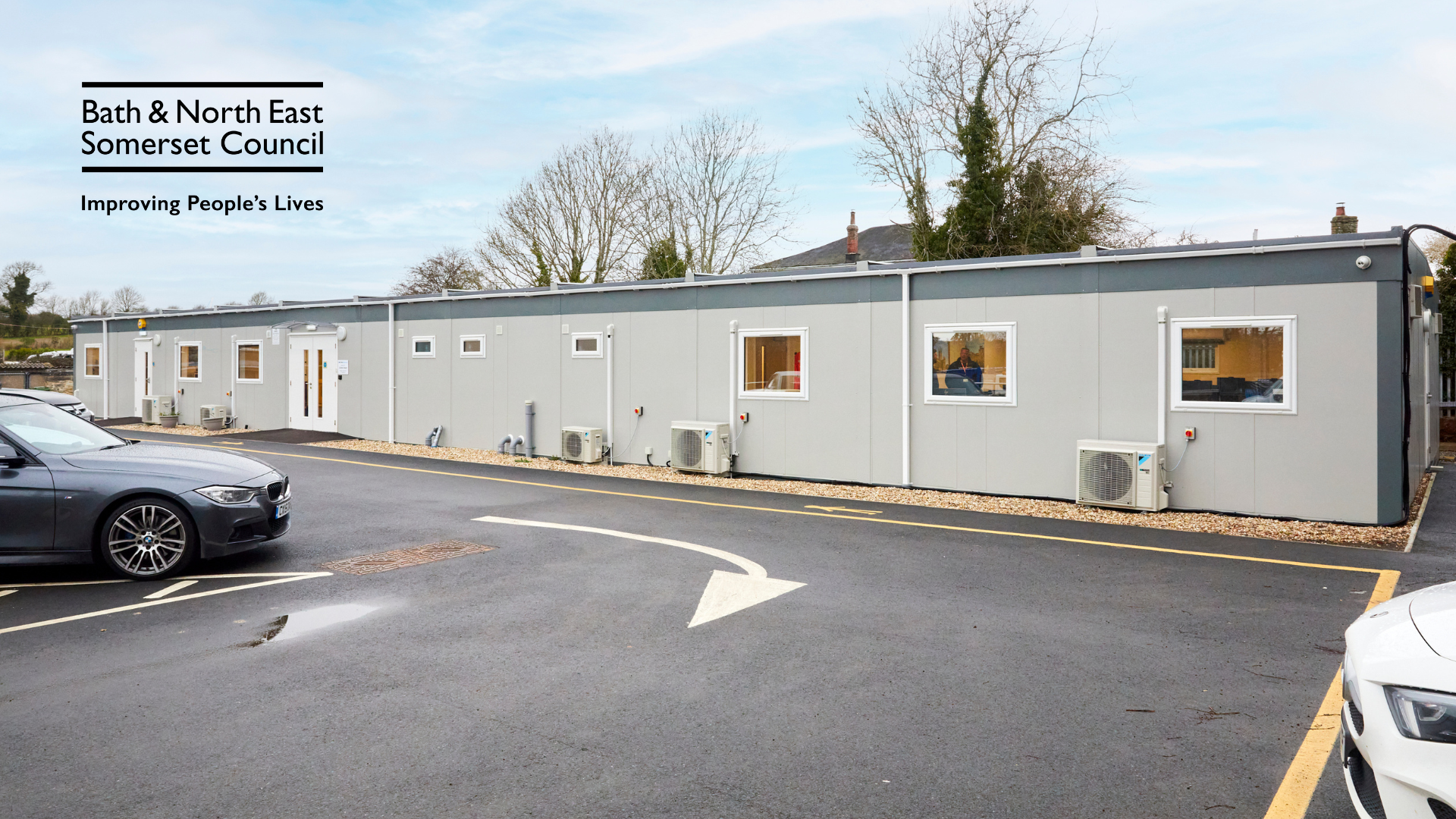Date published: 2023-06-05 | Category: Tackling the climate and ecological emergency, Streets and Highway Maintenance, Preparing for the Future

Investment in a Bath & North East Somerset Council highways depot has resulted in a massive 89 per cent reduction in carbon emissions since its redevelopment two years ago, recent data shows.
The Clutton depot serves as a base for the council’s highway operations and houses vehicles and equipment, along with employees from both the council and its contractor VolkerHighways.
The redevelopment of the depot included the demolishing of the existing office facility and installation of a new office building with energy efficient windows, lighting and a heating and cooling system that retains up to 70 per cent of the buildings heat.
Over an 18-month period of monitoring the office’s carbon efficiency, an energy saving of 14.5t CO2e (tonnes of carbon dioxide equivalent) was made. This is an 89 per cent reduction in emissions compared to the old building and an amount equivalent to the emissions caused by driving an average petrol car 37,171 miles. Using the average current price of electricity per kWh, a cost saving of almost £20,000 has been made.
Improvements were also made to make the day-to-day operational functions of the depot more efficient. A 3,000-litre fuel tank and 10,000-litre water tank which refills overnight were installed, reducing the number of deliveries needed and increasing productivity of the councils gritting and cleansing vehicle fleets. Five electric vehicle charging points have also been also installed.
Further work is planned to install solar panels with battery storage, which will further reduce CO2 emissions a predicted 12.6t per year. An energy management system, which will efficiently distribute power from the batteries across the depot will also be installed.
Councillor Manda Rigby, cabinet member for Transport said: “The redevelopment of the depot at Clutton has had a really positive impact and it’s great to see such a significant reduction in carbon emissions. We’re hoping to reduce this even further with the installation of solar panels.”
ENDS
